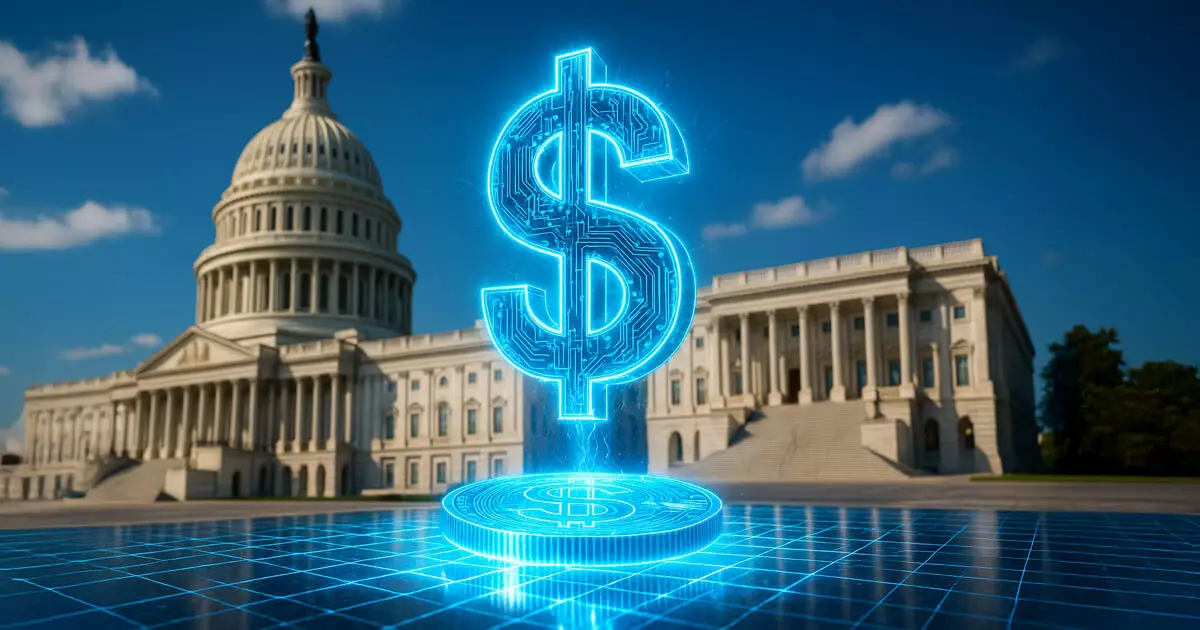Amidst growing interest in digital assets, Senate Republicans are eagerly pushing the GENIUS Act through the legislative gauntlet. This proposed federal framework for stablecoins is not just another routine piece of legislation; it represents an ambitious stride towards a comprehensive digital asset policy that could redefine America’s financial architecture. With its imminent vote scheduled before Memorial Day, the stakes couldn’t be higher.
Led by influential figures like Senate Majority Leader John Thune and notable Senators such as Bill Hagerty and Cynthia Lummis, the bill aims to bring clarity to a sector that has long been shrouded in uncertainty. As the stablecoin market reaches an astounding capitalization exceeding $241 billion, primarily led by giants like Tether and Circle, the need for regulation has never been more urgent. The GENIUS Act proposes a framework for payment stablecoins that mandates strict 1:1 backing with cash or Treasuries, along with monthly attestations to ensure compliance.
The Case for Regulatory Clarity
Supporters of the GENIUS Act argue that establishing regulation is essential for preserving the United States’ role as a global economic leader. With foreign competitors vying for dominance in the digital asset space, delivering a solid regulatory framework for stablecoins is a preemptive move to safeguard dollar primacy. Bill Hagerty asserts the urgency of keeping digital-asset innovation within the country, emphasizing the necessity of subjecting foreign firms to the same guidelines. In a digital ecosystem that remains ambiguously regulated, these measures could be the cornerstone for ensuring security for consumers engaged in this evolving market.
The legislation also aims to yield benefits for the American Treasury by mandating reserve holdings, thereby bolstering demand for U.S. debt. This could create a mutually beneficial relationship where stablecoins support both the digital market dynamic and national fiscal health. By aligning innovation with regulatory oversight, Congress has an opportunity to mitigate risks while promoting a forward-thinking economic agenda.
The Other Side of the Coin: Critics Speak Out
However, the GENIUS Act faces formidable opposition from reluctant Democrats and influential banking lobbyists. A significant critique comes from Senator Elizabeth Warren, who warns that the proposed framework may allow large tech companies to issue their own stablecoins. This potential also raises alarms about the risk of displacement for traditional banking deposits. With over 20 community banking organizations joining the dissent, their fears echo a broader concern regarding the inherent vulnerabilities that might arise from permitting large entities to operate in spaces traditionally governed by established financial institutions.
Critics maintain that without stringent controls, the increased commercialization of stablecoins may expose the financial system to new kinds of risks, ultimately benefiting big-tech conglomerates at the expense of everyday Americans. While proponents preach innovation, dissenters urge a cautious approach, arguing that the real focus should be on protecting consumer interests and preserving the integrity of the monetary system.
The Road Ahead: Bipartisan Hurdles and Potential Compromises
Despite the compelling arguments presented on both sides, ensuring bipartisan support remains a major hurdle for the GENIUS Act. Republicans may hold the Senate majority, but they need at least seven votes from Democrats to achieve the 60-vote requirement for advancing the bill. Democratic Senators Kirsten Gillibrand and Mark Warner have recently indicated a willingness to engage in stablecoin discussions, but their ultimate support remains uncertain.
Complicating matters further, the House Financial Services Committee has proposed a parallel initiative that emphasizes stricter disclosure policies, which may complicate the reconciliation process between the two chambers. The absence of a unified legislative front threatens to deepen an already contentious atmosphere surrounding digital asset regulation.
The Future of Digital Money
As elected officials prepare for the crucial vote, the GENIUS Act embodies broader tensions that govern the future of digital currency in America. The nation stands at a digital crossroads, teetering between innovation unfettered and a cautious approach rooted in regulatory oversight. The implications of this legislation extend far beyond mere economics; they encapsulate the fundamental debate on how society navigates the fine lines between progress and caution.
With lawmakers facing off in this legislative arena, the outcome of the GENIUS Act could well set a precedent, effectively positioning the United States as either a leader or a laggard in global digital asset governance. As the clock ticks down to the impending vote, the momentum generated around this bill could catalyze transformative change in the very fabric of America’s financial landscape.















